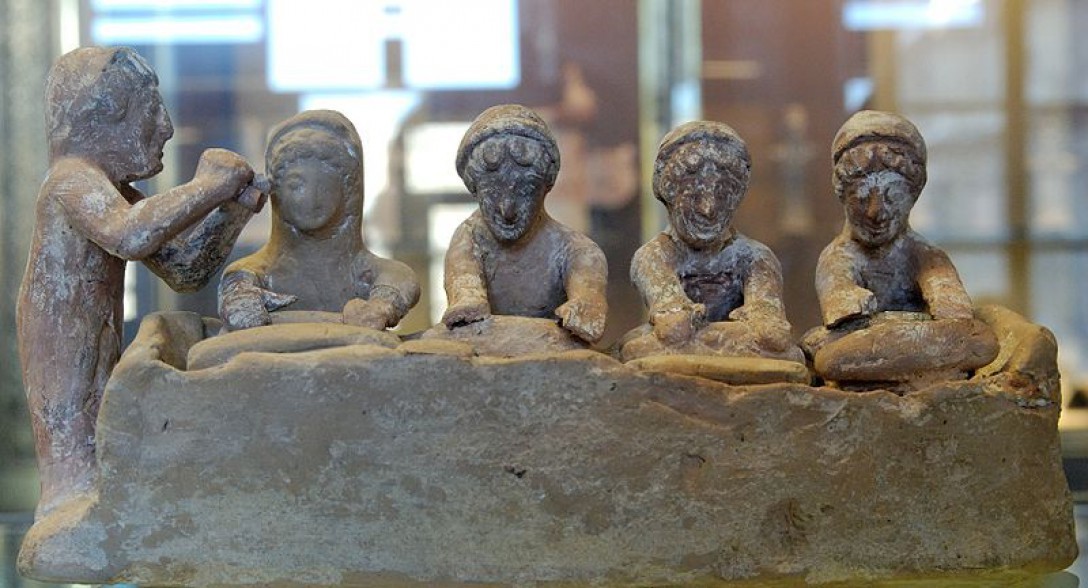Many things have been said about the Greek crisis in the last two years, most of them confusing. The fact is that many Greeks suffer tremendously by the economic turmoil, while the political elite remains untouched.
Ordinary people face deep cuts in wages, collapse of businesses, bunkruptcies, huge tax bills, never- ending Kafkaesque bureaucracy, high cost of living, steadily increasing adult unemployment (from 6·6% in May, 2008 to 16·6% in May, 2011); huge leap of youth unemployment (from18·6% to 40·1% ); diminishing opportunities particularly for young people; absence of growth strategy; reduction of social security benefits.
Is it any wonder that a growing number of graduates are leaving their home country in search of a better fortune elsewhere?
Of course, this causes a massive brain drain.
And…
is it any wonder why more and more families in large cities, especially from the middle and lower classes*, are facing extremely difficult times?
They are losing their jobs** and their homes- they are also losing the access to health care and preventive services. They are struggling to feed their children. The most desperate of them are seeking help from SOS Children…
And after that?
They are facing homelessness and they are forced to stay with family or friends. Many of them are sleeping in their cars, fearing that they are one step away from street homelessness.
“But these are no ordinary homeless people. With an average age of 47, 11% of Greece’s homeless have a university degree (!) and 23.5% hold a high school diploma, while only 9.3% are illiterate. The new Greek homeless class members have laptops and iPhones, remnants of their “old” lives. “They come to us in suits with their laptops in hand. These citizens a couple of months ago had ordinary lives. They had a job, a home and car,” says Nikitas Kanakis, the head of Doctors Without Borders in Athens. Counselors from the Department of Homeless Services describe a similar situation. “We even have homeless from suburbs like Kifisia and Voula! They come here with their laptops and expensive smart phones they once used for their work, shocked and depressed”.
These homeless are not drug addicts or immigrants or people who were always deprived. They are former teachers, doctors, economists, secretaries – the list goes on. Their homelessness is not a result of poor backgrounds or a lack of skills and education; but rather, a result of the “crisis” that continues to play out on front page news, and has destroyed their lives for no reason.” (Emmanouela Seiradaki, Greece’s New Middle Class Homeless Hold a Degree and a… Laptop)
The worst thing about this situation is the lack of official policy planning for their return to work and to society. Thus people who are in material misery, are at the mercy of the social services, the Church, the non profit organizations and the philanthropy of wealthier people.
And
economic recovery appears to be a long way off…
However,
as the ancient Greek word “krisis” implies, crisis has double meaning; it is not only a chaotic situation but also a crucial situation that demands judgment.
Crisis can bring inventive solutions and can force us make consious choises.
to prevent the economic crisis from turning into a social catastrophe, a concerted effort is needed to rediscover those very Greek values of philanthropy, compassion and philoxenia in order to compensate the weakest groups from its adverse effects.
Crisis can set people against one another, but it can also bring them together and give birth to new ways of looking at and interacting with the world.
Worth reading articles:
One small Greek island’s relentless struggle to get by.
Hundreds of Athenians queue for free vegetables.
At Dinner with the Homeless in Athens, Greece.
Amid economic strife, Greeks go back to the land.
Made in Greece: revolutionizing the agricultural sector.
Potatoes & Snails instead of Big City Life.
The crisis is an opportunity for development, say the Greek big business.
“Boroume” or “We Can”, is a voluntary initiative that fights food waste and coordinates the daily donation of surplus food to orphanages, soup kitchens, old age homes and other welfare institutions.
The Diaspora To The Rescue In Greece… Well, Almost.
Solidarity with the Greek people ! I, too, am Greek.
**An average of 1,200 people is losing their jobs each week.
ΓΙΑ ΕΛΛΗΝΙΚΑ ΕΔΩ.


